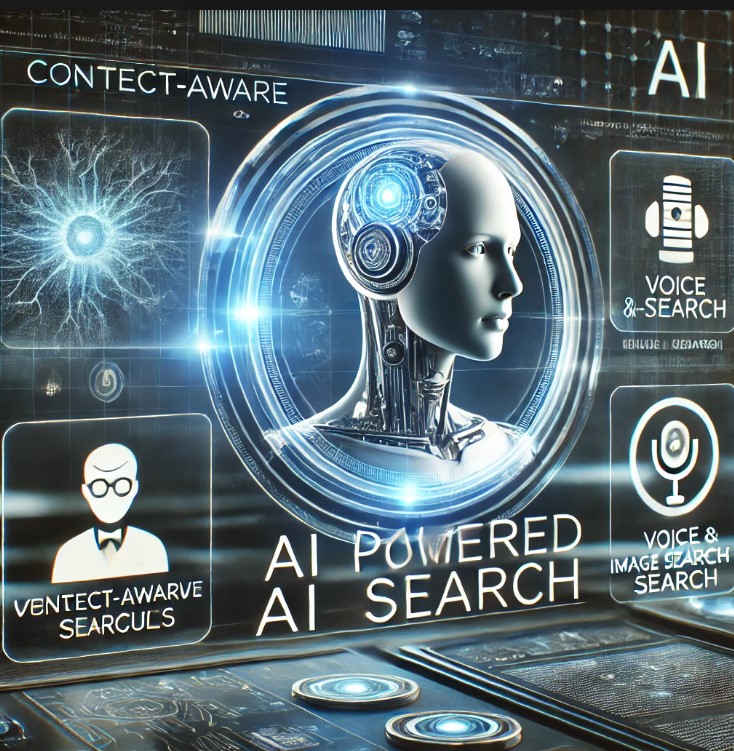
Artificial Intelligence (AI) is no longer a futuristic concept—it’s actively transforming businesses across industries. Microsoft is leading the charge in integrating AI into real-world applications, helping companies optimize operations, improve decision-making, and enhance customer experiences. This article explores how Microsoft AI business transformation is revolutionizing business strategies and driving innovation.
Microsoft AI Business Transformation: A Game-Changer for Companies
Microsoft AI business transformation is redefining how organizations operate. Companies looking to stay competitive are leveraging AI to drive efficiency, boost productivity, and enhance customer experiences.
The Impact of Microsoft AI Business Transformation on Automation
Automation has become a cornerstone of business efficiency. Microsoft AI business transformation is streamlining workflows, reducing manual tasks, and boosting productivity. AI-powered automation tools enable businesses to focus on strategic growth rather than routine operations. According to Forbes, AI-driven automation can increase productivity by up to 40%.
Data-Driven Insights: A Key Component of AI Transformation
AI processes vast amounts of data, generating valuable insights for businesses. Microsoft’s AI-powered analytics solutions enable companies to make informed decisions. Harvard Business Review states that data-driven organizations are 23 times more likely to acquire customers and six times more likely to retain them.
Explore how AI is shaping global competition here.
How Microsoft AI Business Transformation is Empowering Industries
It is providing AI-driven tools that help businesses innovate, scale, and improve overall performance.
AI in Cloud Computing and Enterprise Solutions
Microsoft AI is revolutionizing enterprise solutions through AI-driven cloud computing. Azure AI services offer machine learning, data analytics, and automation capabilities, helping businesses scale effectively. Gartner reports that AI-powered cloud platforms have increased operational efficiency for enterprises by 35%.
AI in Workplace Productivity and Collaboration
Copilot for Microsoft 365 enhances workplace productivity by automating repetitive tasks and assisting employees with AI-driven insights. According to TechCrunch, AI-powered productivity tools can reduce employee workload by 30%, allowing teams to focus on higher-value tasks.
AI in Microsoft Dynamics 365: Transforming Business Management
Microsoft AI extends to CRM and ERP solutions through Dynamics 365. AI-driven business management tools help companies streamline operations, enhance customer engagement, and improve financial forecasting. McKinsey & Company highlights that AI-driven CRM systems can increase sales productivity by 50%.
Read about AI-driven business innovations and market trends
Real-World Impact of Microsoft AI Business Transformation
Microsoft AI business transformation is delivering tangible results across multiple industries, driving efficiency and innovation.
AI in Healthcare: Revolutionizing Patient Care
Microsoft AI is improving healthcare outcomes through AI-powered diagnostics and predictive analytics. Hospitals utilizing AI-driven Microsoft solutions have reported increased diagnostic accuracy and reduced patient wait times. The World Health Organization notes that AI in healthcare can enhance disease detection rates by 25%.
AI in Retail and E-Commerce: Enhancing Customer Experiences
Retailers leverage Microsoft AI to provide personalized shopping experiences. AI-powered recommendation engines analyze consumer behavior, optimizing product suggestions and increasing sales. According to Retail Dive, AI-driven recommendations boost e-commerce conversion rates by 15%.
AI in Finance: Enhancing Risk Management
Financial institutions are adopting AI to enhance fraud detection and risk assessment. AI algorithms analyze transaction patterns to detect anomalies and prevent fraud. A report by PwC indicates that AI-driven financial risk management reduces fraud losses by 20%.
Challenges in AI Transformation
Despite its benefits, Microsoft AI business transformation faces challenges that businesses must navigate to maximize AI’s potential.
Data Privacy and Security Concerns in AI Adoption
AI systems process vast amounts of sensitive data, making security a top priority. Microsoft AI emphasizes compliance with data protection regulations such as GDPR. According to The Financial Times, businesses investing in AI security protocols reduce cybersecurity threats by 35%.
AI Integration Complexity: Overcoming Adoption Barriers
Integrating AI into existing business operations can be complex. Companies must develop AI adoption strategies that align with their workflows. MIT Technology Review states that 60% of businesses struggle with AI integration due to infrastructure limitations.
Addressing the AI Skills Gap in the Workforce
Microsoft AI business transformation requires skilled professionals to develop and manage AI applications. The demand for AI expertise exceeds supply, making workforce training essential. Stanford University reports that AI-related job postings have increased by 74% in the past year.
Learn more about AI workforce development and training initiatives
Conclusion
AI is reshaping industries, driving innovation, and improving business performance. As AI continues to evolve, companies that embrace solutions will gain a competitive advantage. By leveraging AI for automation, data-driven decision-making, and customer engagement, businesses can thrive in an increasingly AI-driven world. Microsoft AI business transformation is not just a trend—it’s the future of business success.
